- December 6, 2018
- Posted by: dev-admin-mike
- Category: HRSP Blog Post

On November 21, 2018, Bill 47, Making Ontario Open for Business Act, 2018 (“Bill 47”), passed Third Reading and received Royal Assent. Bill 47 repeals or rewrites many provisions of the previous government’s Fair Workplaces, Better Jobs Act, 2017 (“Bill 148”). To help employers navigate and prepare for the changes under Bill 47, we have detailed what is changing and what is not changing below.
The Bill 47 amendments to the Labour Relations Act came into force on November 21, 2018, while the Employment Standards Act, 2000 amendments come into force on January 1, 2019. More specifics regarding these changes should be released by the Ministry of Labour in January.
| Employment Standards Act – These changes come into effect as of January 1, 2019 | ||
| Item | Bill 148 – Fair Workplaces, Better Jobs Act, 2017 | Bill 47 – Making Ontario Open for Business Act, 2018 |
| Related Employer | Separate legal entities are treated as one employer if “associated or related activities or businesses” are carried on through multiple entities. | No change. |
| Misclassification | Misclassifying is specifically prohibited, and the employer must establish that the complainant is not an employee. | Misclassifying is prohibited, however an individual asserting a claim has the onus of establishing they are an “employee” where there is a dispute over classification. |
| Minimum Wage | Currently $14/hour; increasing to $15/hour on January 1, 2019. | Minimum wage will remain at $14/hour. Annual adjustments to the minimum wage tied to inflation will restart as of October 1, 2020. |
| Equal Pay for Equal Work | Pay differentials based on “difference in employment status” are prohibited (e.g., PT vs. FT; temporary vs. indefinite) or for temporary help agency workers. | Repealed. |
| Public Holiday Pay | As of January 1, 2018, Public Holiday Pay = total amount of regular wages earned in pay period immediately preceding public holiday, divided by the number of days the employee worked in that period. As of July 1, 2018, the “old” prorating formula re-adopted as an interim measure. | Prorating formula: Public Holiday Pay = total amount of regular wages earned and vacation pay payable to the employee in the 4 work weeks before the work week in which the public holiday occurred, divided by 20 (i.e., the “old” formula). |
| Vacation Pay | 3 weeks’ paid vacation after 5 years’ employment. | No change. |
| Scheduling | 3-hour rule for shortened and cancelled shifts; on-call rule; right to request scheduling or work location changes; right to refuse work or on-call requests made with less than 96 hours of notice: all of the above were to come into force on January 1, 2019. | Repealed: the right to request changes to scheduling after an employee has been employed for at least 3 months;minimum 3 hours of pay for being on-call;the right to refuse requests to work or be on-call where the employee was not scheduled with less than 96 hours’ notice;3 hours of pay where a scheduled or on-call shift is canceled within 48 hours before the shift was to begin; and record-keeping requirements associated with these scheduling provisions. Amended: if an employee is regularly scheduled to work more than three hours a day, attends work, but works fewer than three hours, that employee will be entitled to the greater of: (1) the amount earned for the time worked plus the employee’s regular rate for the remainder of the three hours, and (2) the employee’s regular rate for three hours of work. |
| Personal Emergency Leave (PEL) | 10 PEL days with the first 2 days paid. Employer cannot require a certificate from a doctor or other qualified health practitioner. | Repealed – PEL entitlements are replaced by 8 unpaid leave days comprised of: sick leave (3 days), family responsibility leave (3 days), and bereavement leave (2 days). Employers are permitted to require evidence of entitlement to leave that is reasonable in the circumstances, including asking employees to provide a medical note from a qualified health practitioner. |
| Domestic or Sexual Violence Leave | Up to 10 days and up to 15 weeks of leave in a calendar year, with the first 5 days paid and the remaining days unpaid. | No change. |
| Fines | Maximum fine amounts for contravention of the ESA increased. | Maximum fine amounts decreased to pre-Bill 148 amounts $250, $500 and $1000). The maximum penalties for a contravention of the ESA will be decreased to $250, $500, and $1000 (i.e., the pre-Bill 148 amounts). |
| “Self-Help” Requirement | As of January 1, 2018, Bill 148 removes the requirement for employees to raise an alleged contravention with their employer before filing a claim with the Ministry of Labour. | No change. |
| Overtime Pay | As of January 1, 2018, for employees with more than one role and paygrade with an employer, Bill 148 gets rid of the “blended rate” that is currently used for overtime pay and instead requires the overtime rate to be based on the rate of pay for the work being performed during the overtime hours. | No change. |
| Labour Relations Act – These changes became effective as of November 21, 2018. | ||
| Item | Bill 148 – Fair Workplaces, Better Jobs Act, 2017 | Bill 47 – Making Ontario Open for Business Act, 2018 |
| Employee Lists | Expedited process under which a union with support of at least 20% of the proposed bargaining unit can apply for a list of employees in that bargaining unit (and their personal information). | Repealed. |
| Remedial Certification | The OLRB (“Board”) is required to certify the union if satisfied the employer’s contravention resulted in (a) the true wishes of the employees not likely reflected in a vote; or (b) the union not being able to demonstrate 40% support. | Repealed – Reinstatement of pre-Bill 148 approach to penalty certification for employer misconduct. |
| Return-to-Work Rights | No time limit on an employee’s right to reinstatement following the start of a strike or lock-out. | Repealed – Employee’s right to reinstatement following the start of a strike or lock-out is reduced to six months (return to the pre-Bill 148 timeframe). |
| Reviewing Bargaining Unit Structure | Board may review structure of bargaining unit if certain conditions are met (application made at time of certification application or within 3 months of certification; no collective agreement yet; same union represents both units). | Repealed – The OLRB no longer has the power to review and consolidate newly certified bargaining units with existing bargaining units. The OLRB has the power to review the structure of bargaining units where the OLRB is satisfied they are no longer appropriate for collective bargaining. |
| Card-Based Certification | The Board may certify the union (or direct a representation vote) if the Board is satisfied that more than 55% of employees are union members: building services, home care and comm. services, and temp. help agencies. If 40-55%, the Board will direct a representation vote. | Repealed (with transition clause for elections made before the in-force date) – Card-based certification is no longer be in effect in the building services industry, the home care and community services industry or for temporary help agencies. |
| First Agreements | Mediation, mediation-arbitration and educational support provisions relating to first collective agreements. | Repealed – Pre-Bill 148 conditions for access to first agreement arbitration have been implemented. |
| Extending Just Cause Requirement for Discipline and Discharge | If a trade union is certified as the bargaining agent of employees, the employer cannot discharge or discipline an employee (including those on probation) without just cause during the period that begins on the date of certification and ends on the earlier of the date on which a first collective agreement is entered or when the union no longer represents the bargaining unit employees. | No change. |
| Fines | Fines for offences increased ($5000 for individuals, $100,000 for corporations). | Fines decreased to pre-Bill 148 amounts ($2000 for individuals and $25,000 for corporations). |

You can follow HR Strategic Partners on Twitter at @HRSP_CA, or check out their website at www.hrsp.ca.
Andrea MacLean is the Managing Director for HR Strategic Partners, an HR Consulting company.
